
10 Gardening Tips
Gardening is the practice of growing and cultivating plants. The art of gardening has gained wide acceptance as hobby in recent times. The fragrance of flowers and greenery of fruits and vegetables act as stress-buster and makes your mind fresh. Apart from these myriad colors and flavors, the natural beauty it adds to your house is incomparable. But to maintain a garden, you have to put on little efforts on sowing, reaping and harvesting. Below are some of the most common gardening tips. Before going through these tips, you must first decide the type of garden you want to have; flower garden, vegetable garden, or a herb garden depending on your soil type. So, bring life to your garden this season by filling it with flowering plants of different shapes and sizes. You’ll be rewarded by a happy hum as insects gather nectar and pollen.
10. Grow high value crops:
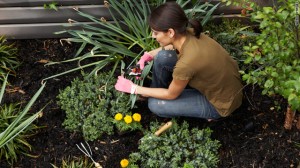
“Value” is subjective, though growing things that would be costly to buy makes good sense, provided the crops are well-suited to your climate. But value can also be about flavor. Thus you can have monetary benefits from your garden.
9. Digging Soil:
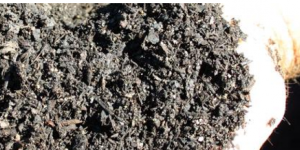
We need to take care of the soil. Besides compost, digging soil contributes in the growth of plants. Digging loosens the soil so roots can penetrate more easily. But digging when the soil is too wet or too dry can ruin its structure. Dig only when the soil is moist enough to form a loose ball in your fist, but dry enough to fall apart when you drop it.
8. Choose High Yielding Varieties:
Keep your mind open to classic, traditionally hybrids as well as superior open-pollinated varieties. This will increase the throughput of your garden. You can surf through to know more about these varieties.
7. Try not to grow too much of anything:
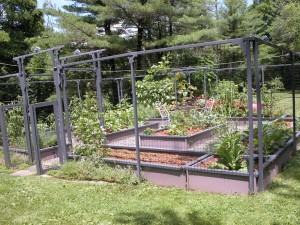
Part of the fun of gardening is discovering new things. Growing more of same crop would be a waste of time, space and precious soil resources. Also using same crop or plant depletes the soil nutrients. Unless you sell at a farmers market stand, aim to grow only as much as you can use.
6. Use Space Efficiently:
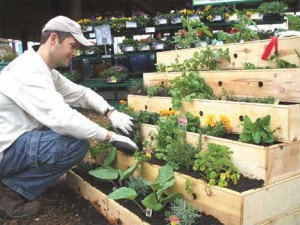
Most of us have limited region to garden, so we must know how to utilize the space effectively. Block planting makes efficient use of space by keeping the spacing between plants tight and eliminating unnecessary pathways. You can even go for vertical gardening which is nowadays considered as an effective way.
5. Use Proper Tools:
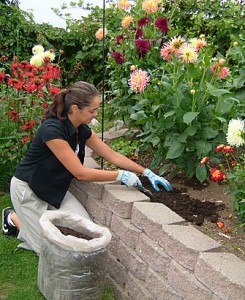
You can create a garden using only a shovel, but the work will be much more efficient and enjoyable if you use tools that fit you and your garden. Long-handled spades and hoes that you can use standing up are best if your garden is big, but consider short-handled tools if you work in small raised beds. Remove spent flowers from flowering plants every few days as this will prolong the flowering season. This is especially important in the case of flowering annuals but it also applies to many flowering shrubs.
4. Compost and Fertilizers:
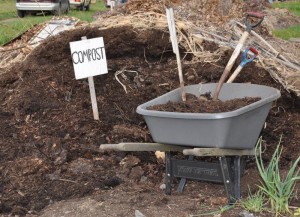
Soil needs the boost which can be effectively provided using organic compost. Use an enclosed com-poster or a bin to capture your kitchen garbage. This turns out to be the best organic compost. Take advantage of free, nitrogen-rich fertilizers such as grass clippings and human urine. Use leftover tea and coffee grounds to acidify the soil.
3. Choose Crops or Plants wisely:
You need to wisely think over the plants or crops keeping in mind the external factors like soil and weather condition. Instead of struggling to grow resolute sun-lovers, grow semi-shade-tolerant plants such as chard, lettuce and other greens. Consider growing green house varieties. Try cucumber, pole bean and tomato varieties that have been adapted to greenhouse culture. You can also try perennial crops. Perennials are basically ornamental plants that do not die after one season of growth. In addition to growing what you eat, try growing tasty beverages.
2. Watering :

Watering is something that you need to take care of. For plants that require a regular supply of water, water deeply every few days rather than a shallow watering every day. A long, deep watering will encourage the plant roots to go deeper in response to the deeper moisture level.
1. Control Aphids, weeds and Fungus:
You can control aphids with a strong blast of water from the hose or with insecticidal soap. Concentrate on the undersides of leaves, because that’s where the little buggers like to hide. Use chamomile tea to control damping-off fungus, which often attacks young seedlings quite suddenly. To help keep weeds out and water in, cover the soil with a couple of inches of mulch. All sorts of mulch are available, from pine needles to cocoa hulls to bark chips. For a vegetable garden or bed of annuals, choose mulch that decomposes in a few months.



